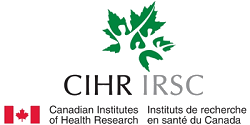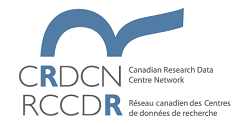About

The Saskatchewan Research Data Centre (SKY-RDC) is a research data platform that is part of a nation-wide network of research data centres (RDCs) - the Canadian Research Data Centres Network (CRDCN). We are a joint venture of the University of Saskatchewan and Statistics Canada, providing secure access to detailed microdata from Statistics Canada's surveys and censuses. Increasingly, administrative datasets from the federal and provincial governments are also becoming available through RDCs. Our mandate is to support research and training in social, economic and population health statistics to create new knowledge about Canadian society.
Anyone can use an RDC if your project has received approval through the official Social Sciences and Humanities Research Council of Canada (SSHRC) mandated approval process. Faculty, students, public agencies, provincial agencies, non-profits members, and members of the public may become approved researchers and be granted access to resources through RDCs like SKY-RDC. Researchers whose projects are approved will be subject to a security clearance procedure before being sworn in under the Statistics Act as 'deemed employees'. See How to Access RDC Data for more information.
The detailed data accessible in RDCs complements the Statistics Canada Data Liberation Initiative (DLI) that provides direct, unmediated access to public use microdata files (PUMF) through academic libraries.
Researchers use SKY-RDC microdata to investigate a wide range of social, economic and health-related topics. Some examples include population structure; disease prevalence; living with chronic diseases; labor force participation; adult literacy; household spending; child poverty; internet use; school success; workplace stress; Indigenous well-being; immigrant integration; and mental health/illness. RDCs, like SKY-RDC, are essential infrastructure for quantitative inquiry. Decision-makers and the public need up-to-date and in-depth analyses of relevant data to develop evidence-informed policy decisions that respond to today's needs and anticipate tomorrow's.
SKY-RDC is effectively an extension of Statistics Canada offices with an on-site Statistics Canada analyst to provide data-related knowledge and services and ensure compliance with confidentiality policies and procedures.
Our Partners
The operation of SKY-RDC is made possible by funding and in-kind contribution from the University of Saskatchewan, in-kind contributions from Statistics Canada, and grants from the Social Sciences and Humanities Research Council of Canada (SSHRC), the Canadian Institutes for Health Research (CIHR), and the Canadian Foundation for Innovation (CFI).
Datasets at SKY-RDC
There is a variety of data available through SKY-RDC, and RDCs throughout the country, on demographics, health, economic and social characteristics of the Canadian population. These detailed datasets are provided as Master Files. Facsimiles of the Statistics Canada surveys used to collect this data are also available.
Please note that longitudinal surveys and linked survey and administrative datasets are only available through the RDCs.
How to access RDC data
Application Process and Guidelines
To access the microdata housed in SKY-RDC, researchers must submit a project proposal to an online adjudicating committee operating under the auspices of SSHRC and Statistics Canada. SSHRC invites applications from individual researchers and research teams led by a principal applicant.
Carefully follow the application process detailed on the Statistics Canada website.
Understand your responsibilities as an RDC user:
- Read a sample research proposal to understand the guideline for a successful application.
- Ensure your project adheres to the guidelines for RDC research papers, including peer review, required for all RDC supported research publications.
- Acknowledge your use of RDC data in publications, presentations, and theses. All publications (scientific articles, reports, dissertations, theses, etc.) and presentation using datasets available through RDCs should include an acknowledgment of support provided by granting councils (SSHRC, CIHR, CFI), Statistics Canada, and the host university. Below is a template that you can use:
Datasets at USask Library
Public Use Microdata Files (PUMF)
Not all research requires access to Master Files through an RDC. In fact, it is a condition of access to RDC Master Files that your proposed study cannot be done with available PUMF files.
Public Use Microdata Files (PUMF) contain de-identified data for characteristics pertaining to survey units (e.g., individuals, households, or businesses) that have been authorized for release to the public by Statistics Canada Microdata Release Committee.
PUMF contain similar data to RDC Master Files but may include only a subset, not the full sample of respondents. In order to protect against the possibility of identification, the statistical aggregates or categorizations used are at a more general level (e.g., age categories rather than single years of age, higher levels of geography such as provinces or regions rather than census tract areas, no income or ethnicity variables, etc.). This general level of aggregation and categorization may limit the kinds of research that can be done with this data which is why access to more detailed data via the RDC program could be more appropriate. In addition, the RDC master files contain derived variables and bootstrap weights used to calculate variance.
Publications
To see research done on a specific topic, using a particular survey, or done in a specific RDC, you can search the Canadian Research Data Centre Network (CRDCN) bibliography. It provides quick and easy access to all publications by researchers in the national network. The bibliography includes M.A. and Ph.D. theses, policy reports, working papers, articles published in refereed journals, and book chapters.
Contact
Hours
- Monday - Friday: 9 am to 5 pm
- Saturday & Sunday: Closed
Ruben Mercado, Ph.D., Statistics Canada Analyst (General Inquiries)
(306) 966-8216
Dr. Mercado is an employee of Statistics Canada responsible for the daily operations of the Centre including enforcing Statistics Canada data confidentiality regulations and vetting output from research projects.
Sarah Rutley, MA, MLIS, Interim Academic Director for SKY-RDC
sarah.rutley@usask.ca
Sarah Rutley is a University of Saskatchewan faculty member and the institution’s Data and GIS Librarian. She is responsible for the local governance and administration of the Centre as well as its promotional and outreach activities.
Location
Visitors' address:
University of Saskatchewan, Murray Library
Room 237 Murray Building, South Wing
3 Campus Drive, Saskatoon SK S7N 5A4
Mailing address:
University of Saskatchewan Library
Room 156 Murray Building, Dean's Office
3 Campus Drive, Saskatoon SK S7N 5A4
Canada





